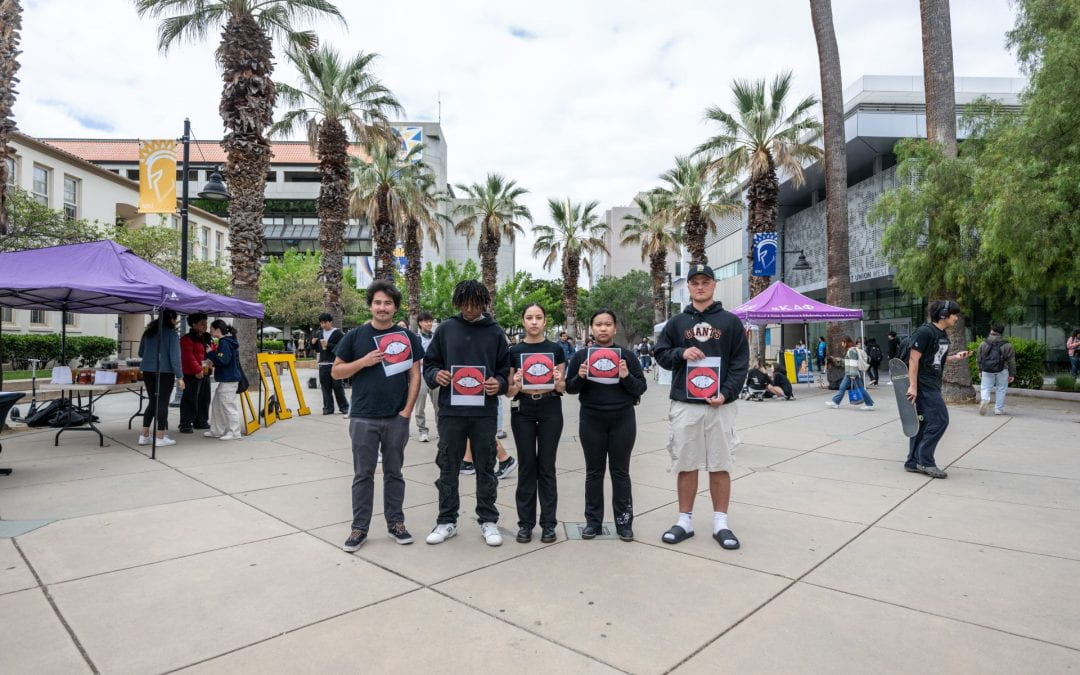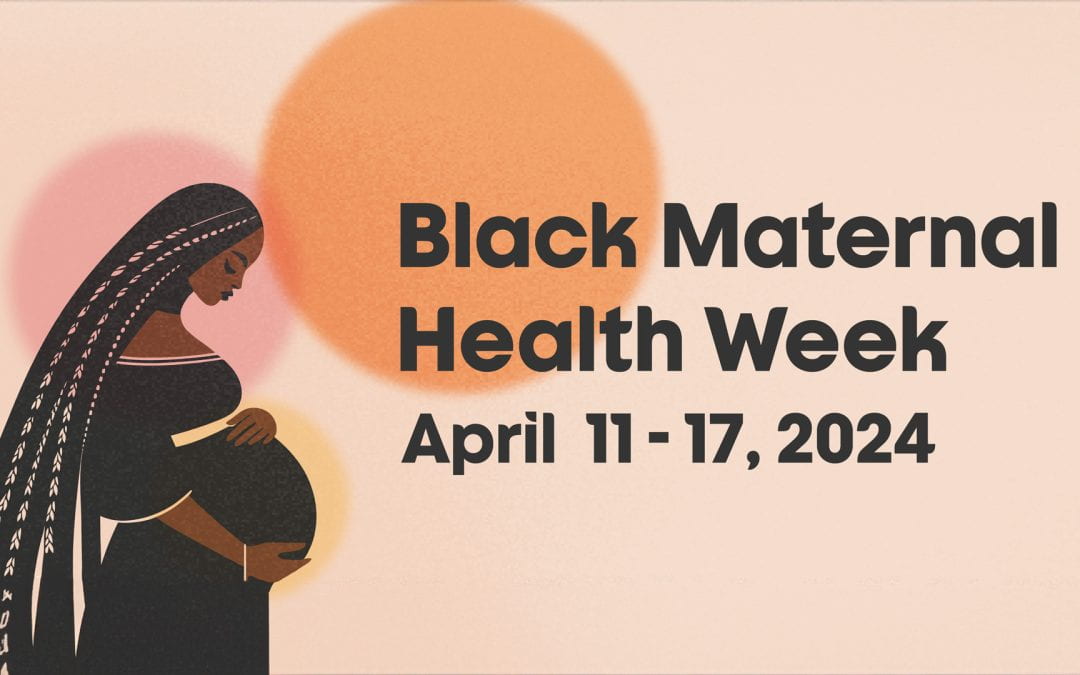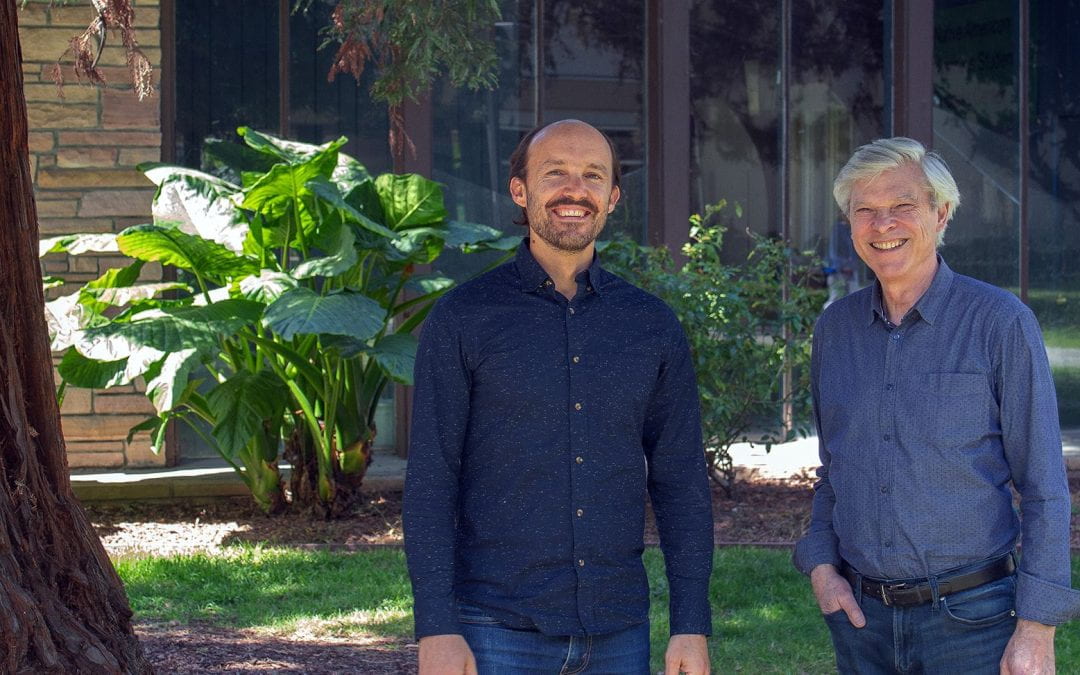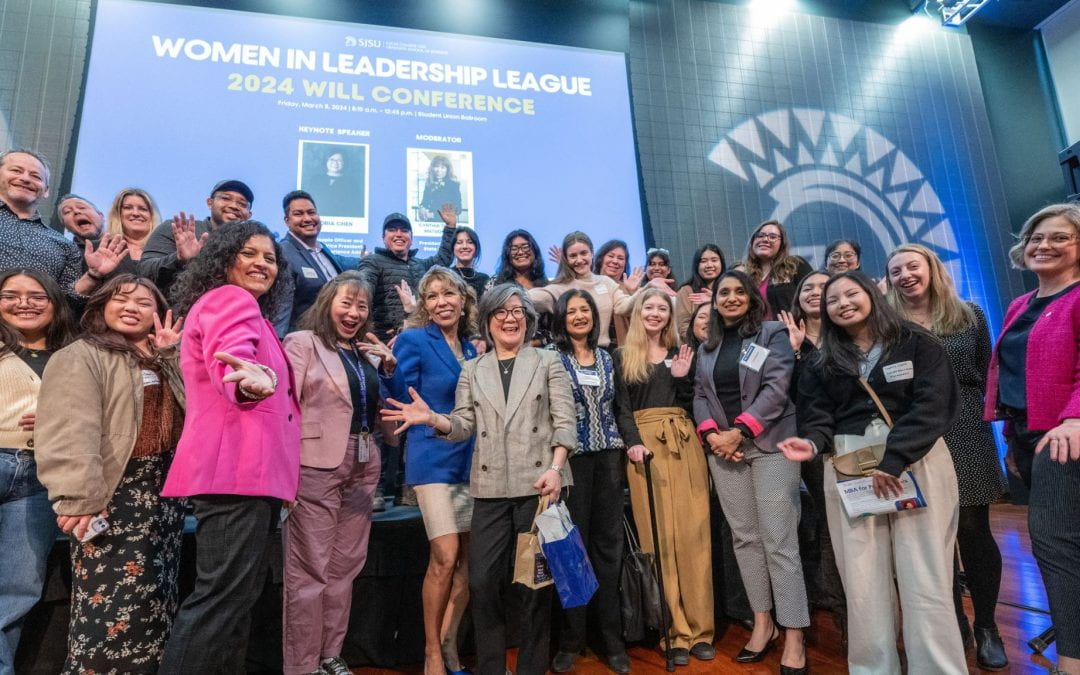Deep Dive in Five: Black Cab Jazz With Aaron Lington
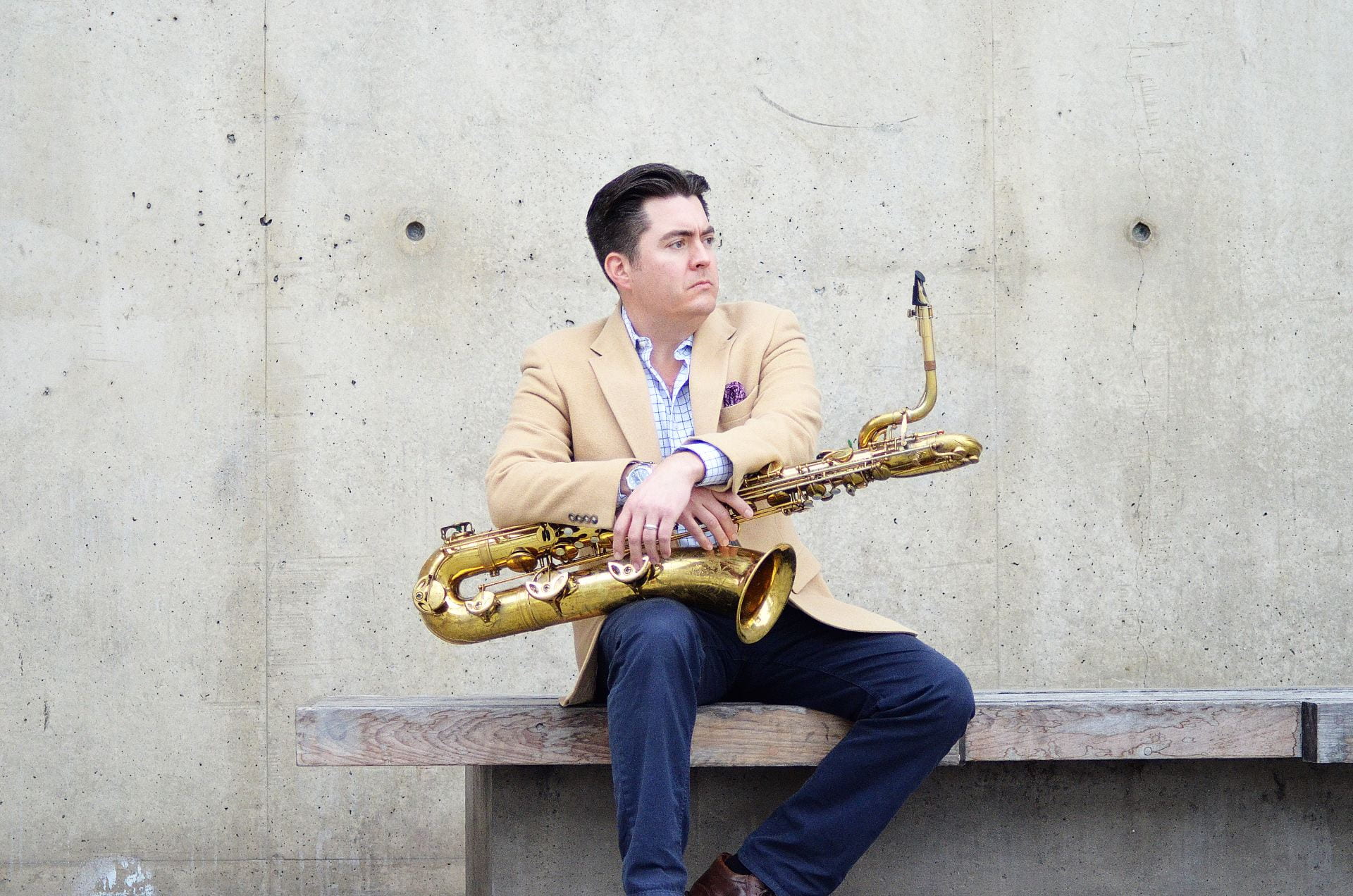
Did you know that San José State University has a Jazz Studies program? Not only that, every semester Spartan musicians get the chance to take master classes with professional musicians as part of the Black Cab Jazz series, a series of live performances that we offer at the Hammer Theatre — usually two in fall semester, two in spring, depending on funding and artist availability. “Cab” is short for cabaret; “black” for black box theater, a multi-use performance space.
The series is made possible thanks to a partnership between the College of Humanities and the Arts, SJSU’s Hammer Theatre and the nonprofit organization San José Jazz.
I sat down with Aaron Lington, Jazz Studies program coordinator and Grammy Award-winning baritone saxophonist and composer, to ask him about curating the Black Cab Jazz series and teaching jazz improvisation.
1. What is the origin of the Black Cab Jazz Series?
Aaron Lington (AL): I went to graduate school at the University of North Texas, where once a week in the spring semesters a fairly well-known jazz musician would visit campus to give a lecture and an informal concert. It was so cool to have access to professional musicians every week.
Fast-forward to teaching at San José State, where Fred Cohen, director of SJSU’s School of Music and Dance, told me that the College of Humanities and the Arts offers Artistic Excellence Programming Grants (AEPG). I applied for a grant to start a jazz series, and through the AEPG funding, plus additional support from the [Chris Burrill at the] Hammer Theatre and San José Jazz, we are able to host a few shows a year.
2. Why is it important to see live music?
AL: Attending live music [performances] are important for any musician. It offers great synergy between the musicians and the audience, and is also a great communal experience. But for music students especially — whether they are music majors at San José State or community musicians — being able to have some one-on-one time with a really great artist is incredibly important for artistic development.
3. How do you select musicians for the series?
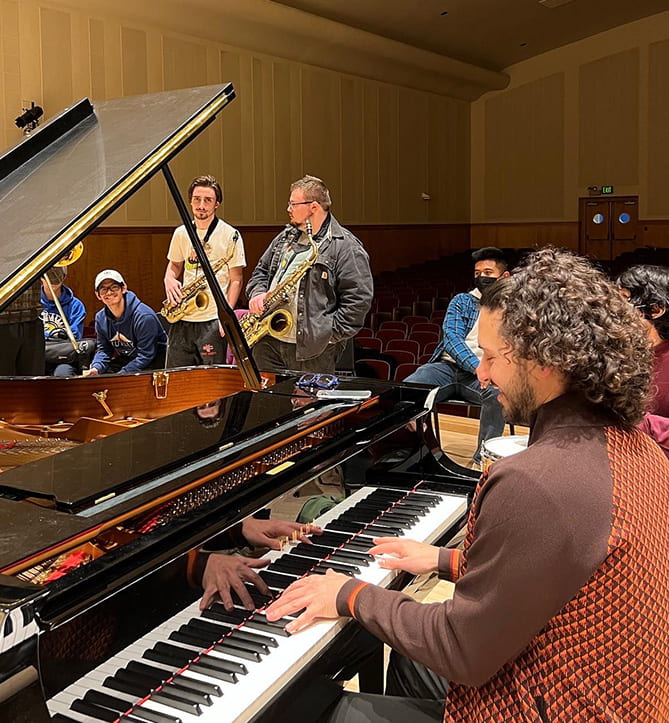
SJSU Jazz Studies students practiced with jazz pianist Emmet Cohen at a clinic in fall 2022. Photo courtesy of Aaron Lington.
AL: All of the music we seek exists in the broad universe of what you would call “jazz.” Jazz isn’t something that is only relegated to the past. You can ignore any stereotype of what you think jazz is. We look for diverse programming, primarily from a stylistic standpoint. We don’t want to have four artists that are all exploring the same things.
As an example, we recently hosted Habib Koité, one of the biggest musicians in Mali. He has a very unique approach, combining epic poetry-like lyrics and storytelling with songwriting.
And then we hosted Emmet Cohen, one of the foremost young jazz pianists in the world right now. He is well-versed in an older jazz piano style called stride style, which he likes to work into his concerts. During the pandemic, he would broadcast live concerts from his apartment in Harlem, New York, and thousands of people would tune in.
During his concert at the Hammer, he invited one of my students up onto the stage to play with him during the encore. His concert was offered directly after the clinic at SJSU, so he’d heard my student play saxophone an hour earlier. My student’s smile was so big. He’ll remember that for the rest of his life. Those are the types of experiences that we want students to have.
4. A number of the visiting artists you invite are acclaimed jazz improvisers. How important is improvisation to jazz musicians?
AL: Improvisation is not as foreign as it may seem. We improvise when we talk; we’re not reading off a script, but we agree upon a certain grammar or syntax, or to speak in English. And yet I have a point to make, so I have to use the words I know to express my point.
It’s the same for an improvising musician. The more vocabulary, the more things you’re able to do on your instrument, the more you can draw upon in an instant and express it well. It’s about the dialogue you have with other musicians, reacting to what each other does in the moment. The most important thing about improvisation is that it showcases an individual’s musical statement in that moment. As a musician, you spontaneously compose music — it’s what jazz musicians are really revered for. It’s a very challenging thing to do.
Our Black Cab Jazz artist for February, Melissa Aldana, a saxophonist from Chile, was just nominated for a Grammy for best improvised jazz solo, which is the holy grail of awards for any jazz musician.
5. What do you hope students get from the Jazz Studies program?
AL: It is possible yet challenging to make a living only as a performer. Therefore, you have to diversify your skills. I want to graduate students who are fantastic on their instruments, who can ideally drop themselves into any kind of situation and succeed, whether it be playing jazz or playing in a pop, funk or rock band. I want to teach students who know how to arrange music because that typically comes up.
And while I don’t teach music education, other faculty members in our school do, and we want students who are decent teachers. We want to graduate really well-rounded, excellent musicians who stay curious about quality music for the rest of their lives — or however long they continue to play music.
Learn about the upcoming Black Cab Jazz performance on Feb. 3 and other events at Hammer Theatre.

